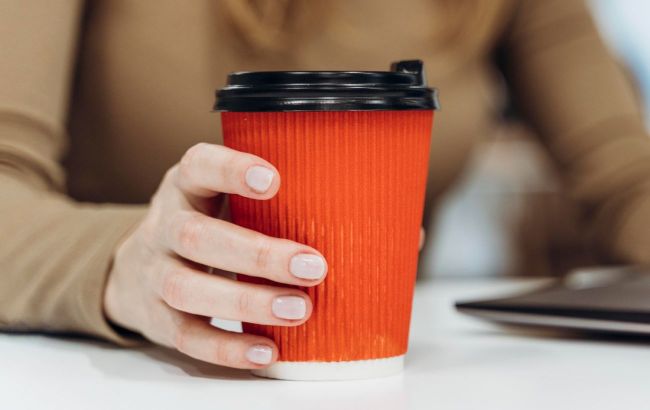Shocking truth about your to-go coffee: Doctor explains risks
 Why disposable drink cups are harmful (photo: Freepik)
Why disposable drink cups are harmful (photo: Freepik)
Takeaway coffee is a convenient habit in today's fast-paced life. But behind every aromatic cup in a plastic cup hides a potential health risk. Exclusively for us, Ukrainian endocrinologist, therapist, and clinical laboratory diagnostics expert Olena Domanska explained how plastic cups can affect your health.
Impact on the body
Hot drinks are especially popular during the colder months. But whether a beverage warms you or harms your body depends on the container.
According to the doctor, drinks should definitely not be consumed from plastic cups, and caution is also advised with lids and straws. For long-term health, it's important to understand that microplastics released into the drink don't damage the body instantly, but accumulate over time.
Therefore, it's best to replace them with regular dishes, reusable metal thermos cups, or glassware.
Additionally, most paper cups are lined with a thin layer of plastic (polyethylene) to prevent leaks. Microplastics cause inflammation and oxidative stress, and they also trigger the formation of free radicals while disrupting the body's detoxification processes.
Takeaway coffee is also an easy way to consume "empty calories," mainly from carbohydrates.
"For example, a latte or cappuccino can trigger an insulin spike you didn't even anticipate. About an hour later, you experience a blood sugar drop, and extra inches quickly accumulate on your body. Visceral fat is a major source of inflammatory compounds that gradually turn what was once an ideal body into an unhealthy figure," explained Olena Domanska.
Right containers for hot drinks
According to Ukraine's State Service for Food Safety and Consumer Protection, selling drinks to-go is only allowed in clean containers, including a customer’s own container if it is suitable for use.
Therefore, food outlets are not allowed to fill dirty or damaged containers.
Containers and materials that come into contact with food must be safe, must not release harmful substances, and must be suitable for hot drinks.
In other words, establishments should only use certified containers marked with the "cup and fork" symbol, confirming they are safe for hot liquids.
If a container may affect safety, consumers must be informed. This includes labeling, such as "not for hot drinks," which must be clearly visible and understandable to customers.
Earlier, we wrote about 5 foods you should never cook in stainless steel cookware.
This material is for informational purposes only and should not be used for medical diagnosis or self-treatment. Our goal is to provide readers with accurate information about symptoms, causes, and methods of detecting diseases. RBС-Ukraine is not responsible for any diagnoses that readers may make based on materials from the resource. We do not recommend self-treatment and advise consulting a doctor in case of any health concerns.

